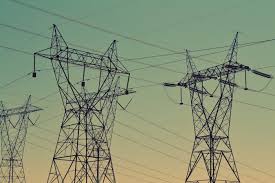The National Council on Power has agreed to introduce a cost-reflective tariff for electricity in Nigeria. This move is aimed at reducing the N200 billion monthly electricity subsidy being paid by the Federal Government.
This decision was announced in a communiqué released by the Ministry of Power after the 6th edition of the National Council on Power, which took place in Maiduguri, Borno State. The council is the highest decision-making body in Nigeria’s power sector and includes the Federal Government, state governments, private sector players, and other stakeholders.
According to the communiqué, the council accepted that while electricity should be sold at a rate that reflects its actual cost, subsidies should not be removed entirely. Instead, they will now be targeted at only the most vulnerable Nigerians. The goal is to keep the subsidies at a level that is both manageable and sustainable for the country.
The statement read, “Council adopted that electricity must be paid for at a cost-reflective rate, while subsidies must still exist for the vulnerable but must be targeted and well administered at a manageable and sustainable level.”
The council also agreed that the debts and financial responsibilities in the electricity market must be shared among all parties. These parties will have further discussions to determine how to divide both assets and liabilities fairly.
The Minister of Power, Chief Adebayo Adelabu, who presided over the meeting, has previously warned that the N200 billion being spent monthly on electricity subsidy is not something the country can continue to afford. He said that only Band A customers, who enjoy electricity supply for at least 20 hours daily, currently pay the actual cost of power. The government still pays part of the bills for others under lower bands.
The conference, with the theme “Consolidating Reforms for a Sustainable Energy Future in Nigeria”, was attended by over 400 delegates from government agencies, private sector companies, and civil society groups. The Permanent Secretary of the Ministry of Power, Mr Mahmuda Mamman, chaired the plenary and technical sessions.
During the council meeting, several important decisions were made. One of them was for the Nigerian Electricity Management Services Agency (NEMSA) to continue working closely with the Nigerian Electricity Regulatory Commission (NERC). The aim is to increase capital expenditure in the sector and improve power infrastructure.
NEMSA was also directed to work with the Minister of Power and NERC to make sure electricity distribution companies are recapitalised. This would help them solve problems at the points where transmission meets distribution and where distribution connects to end users. Fixing these issues would help improve the stability of the national power grid.
The council also called on the Nigerian Bulk Electricity Trading Company (NBET) to keep engaging with stakeholders, especially state governments, to prepare for its new responsibilities. NBET is expected to play a major role in Nigeria’s future power market reforms.
On renewable energy, the Federal Ministry of Petroleum Resources (Gas) had requested for the creation of a new Renewable Energy Initiative and an Inter-Agency Task Force. But the council noted that there is already a renewable energy and energy efficiency policy managed by the Ministry of Power. It said this policy should be shared with other relevant bodies such as the Ministry of Environment and the National Council on Climate Change to ensure proper coordination.
To improve power supply in the North-East, the council also agreed on the need to build new double-circuit 330/132kV transmission lines.
In response to Borno State’s request for more rural electrification projects, the council said the state government should partner with the Rural Electrification Agency. They can use the available funds to develop solar mini-grids across local communities. States were also encouraged to develop their own embedded generation networks to supply power locally.
The council also noted that the long-delayed Mambilla Hydropower Project is still tied up in court and cannot move forward until the legal issues are resolved.
Lastly, the council stressed the need for state governments and relevant agencies to work together to protect critical power infrastructure from vandalism and insecurity.
